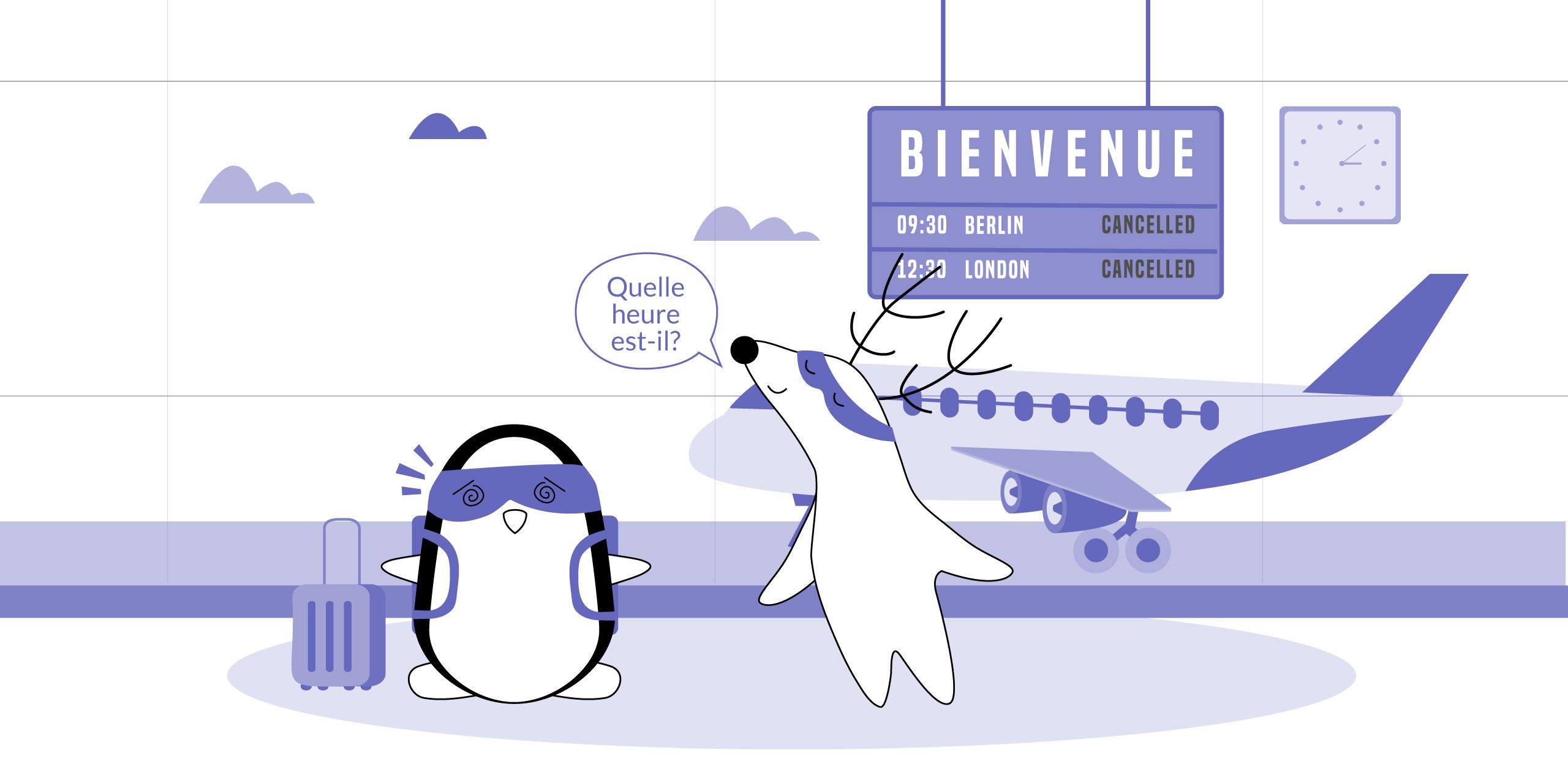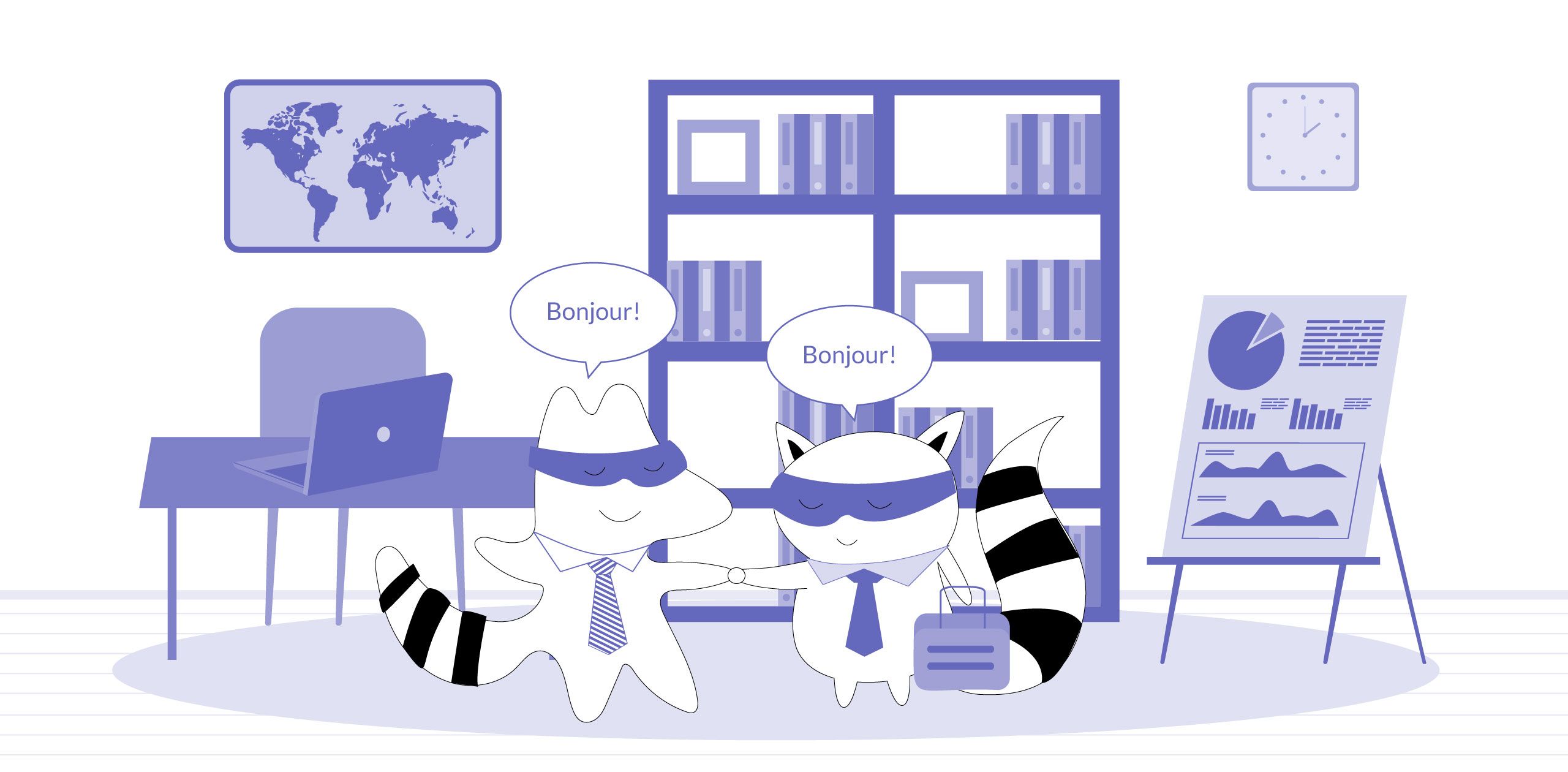
Going into the French business world without some knowledge of business French is a recipe for disaster. While English is the predominant language of international business, it is still important to understand some key aspects of business French to ensure effective and professional communication with your French-speaking counterparts.
But, entering a new language culture is never easy. To make your journey in the French business world a bit more comfortable, we’ve prepared this article. Below, we’ll explore some facts about business French that every learner should know, as well as learn the basic business vocabulary. Read on.
Learn French with Langster
Let’s Start With Why
Before we get into the reasons you should learn business French, let’s first take a look at some of the basics. Below, we’ve listed 4 key facts about business French.
1. Business French is not the same as regular French.
Just like there are many different dialects of English, there are also many variations of French. Business French is specifically tailored for professional communication and differs from regular French in terms of vocabulary and style.
2. You will need to learn new vocabulary.
In order to do business in French, you will need to learn new words and phrases specific to the business industry. This specialized vocabulary can be difficult to master, but with enough practice and exposure, you will be able to understand and use it confidently in any professional setting.
3. You don’t need to be fluent to do business in French.
Even if your fluency in the French language isn’t yet at the highest level, you can still do business by using French business phrases in combination with basic vocabulary and grammar. With a little practice and patience, you will be able to carry on business conversations with your French-speaking counterparts with relative ease.
4. You might need business French in different settings.
Even if you don’t do business with French partners, you might still need to use some business language when visiting a French-speaking country or studying there. You’ll need business French, for example, when writing a CV or a cover letter, composing an official email, giving a presentation, or simply reading business articles.

Learn Basic French Business Vocabulary
Learning business French depends on two things: learning the vocabulary words used in the official language and getting familiar with the formalities. Of course, you don’t have to memorize every single word, but knowing most of them will definitely make your life easier.
Let’s start with some basics:
French
English
un comptable
accountant, bookkeeper
un commissaire aux comptes
auditor
le chef
boss
le chef d’entreprise
boss of the company
la femme d’affaires
businesswoman
l’homme d’affaires
businessman
l’acheteur
buyer
le client
client
un concurrent
competitor
un conseiller
consultant
un créancier
creditor
un débiteur
debtor
un employé, une employée
employee
l’entrepreneur
entrepreneur
le candidat, la candidate
job candidate
l’associé
partner
le personnel
personnel
la gestion, direction, gérance
management
le vendeur
seller
le main-d’oeuvre
workforce
un bilan, une annonce
a published report
livrer un bilan
to turn in a report
Payments:
French
English
le salaire
salary
les honoraires
fees
une avance
advance payment
une échéance
due date for a payment
la comptabilité, la compta
accounting department
le bénéfice
profit
les biens
company’s assets
brut
gross
bénéfice net
net income, profit
l’impôt
tax
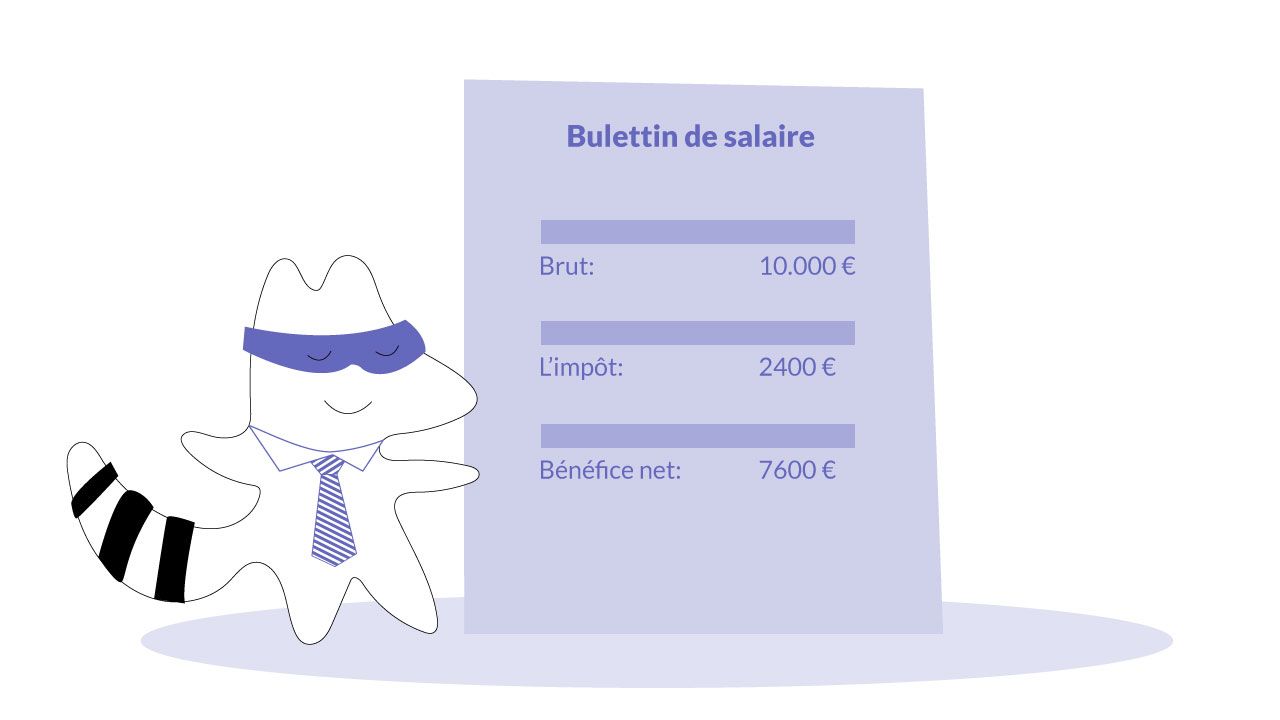
Types of companies:
French
English
la société
company
la société anonyme
limited company
la multinationale
a multinational company
la maison mère
a parent company
l‘association (à but non lucratif)
a non-profit organization
PME – petite et moyenne entreprise
SMB – small and medium-sized business
Important verbs:
French
English
acheter en gros
to buy in bulk
annuler une commande
to cancel an order
approuver, ratifier
to approve
avoir les moyens d’acheter
to afford
concourir, être en concurrence avec
to compete with
créer une entreprise
to establish a business
déposer le bilan
to file for bankruptcy
embaucher
to hire
expédier
to ship
faire de l’argent, faire des bénéfices
to make money
faire faillite
to go bankrupt
faire la publicité
to advertise
lancer un produit
to launch a product
lancer, monter un business
to start a business
posséder, être propriétaire
to own
prêter
to lend
promouvoir
to promote
recruter, enrôler
to recruit
rembourser
to refund
renouveler
to stock up
réussir
to succeed
violer, rompre un contrat
to break a contract
French Business Culture: 5 Things You Should Know
Unfortunately, learning French for business goes further than just memorizing the vocabulary. This is a language with many formal nuances you’ll need to abide by in the professional environment. And, if you want your business to run smoothly, knowing these is a must.
Here are four things to get you started:
Tu vs. Vous
When conducting business in French, it is important to use the formal "vous" form instead of the informal "tu." Using the informal can be seen as disrespectful or even arrogant and can potentially ruin relationships with clients or partners.
It is especially important to use the formal form when meeting for the first time, when discussing sensitive information, or when in a position of authority. The rule of thumb for non-native speakers is to only move to the “tu” basis if the other person suggests it.
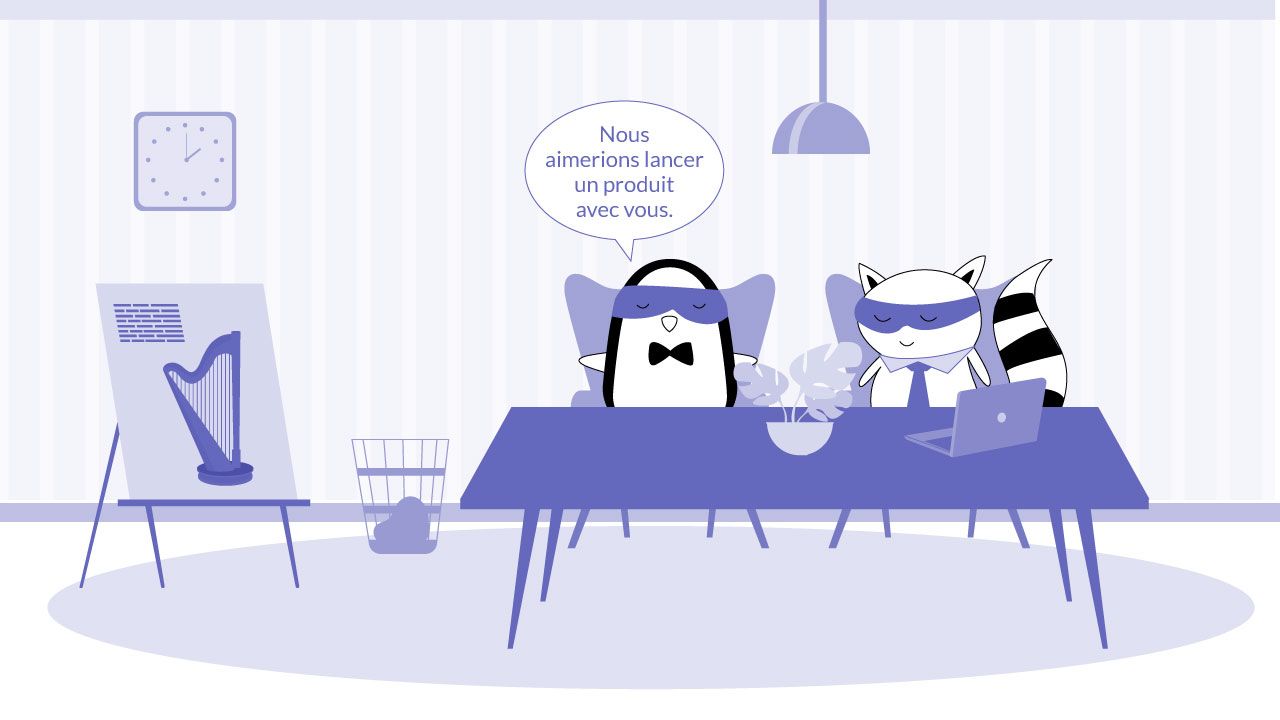
Stay Polite and Formal
There are a few things that non-native speakers can do to stay polite and formal in the French business world. One of them is to only say "bonjour" once a day. You can use "salut" or just nod to greet someone once again. Remember that handshakes are common and expected in a professional situation, and only use kisses on the cheek in casual settings.
Apart from that, be aware of French etiquette rules, and make sure that you are following them. For instance, never arrive late for a meeting, and if you do, remember to sincerely apologize.
Separate Business and Private Life
In France, it is considered very important to separate one's business and private lives. This is done to maintain professionalism in the business world and to avoid any conflicts of interest. People don’t do tasks related to work after work hours or on Sundays – this is actually forbidden in the country.
It’s also a very distinct sign of French culture – French people have a slow, enjoyable lifestyle and don’t allow work to interfere with their plans and interests.
Know Your Taboos
In the French workplace, there are a few things that are considered taboo. For instance:
- don’t discuss personal matters with coworkers
- don't ask about their political leanings (but you can ask about their opinions related to politics)
- don’t discuss wealth or ask someone about their salary
- keep your hands out of pockets
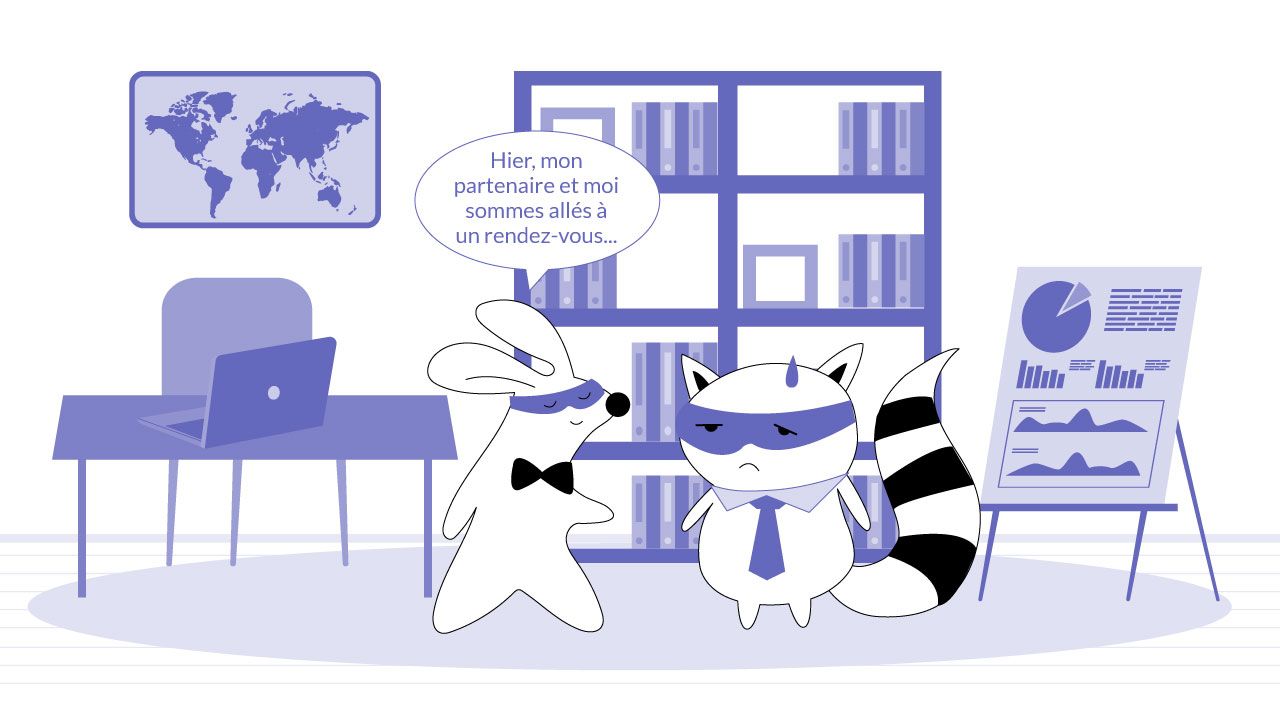
Bottom Line
Knowing a little about French business culture can help you avoid making any embarrassing mistakes when conducting business in France. However, it's also important to use the correct vocabulary and work on your skills to perfect them.
Nevertheless, if you want to learn French for business, now you can see that it’s not that challenging – especially if you already know some basic French grammar and vocabulary. So, if you want to enter the French business world, don’t be afraid to give it a try now. And, bonne chance!








